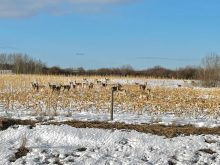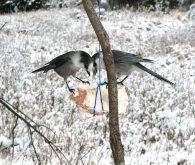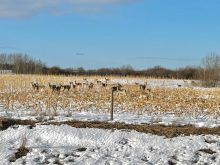Manitoba Natural Resources and Northern Development has made some changes to help prevent the spread of chronic wasting disease (CWD).
The province has expanded the harvested cervid mandatory sample submission zone and established a strictly regulated and managed mule deer hunting season in defined areas along the western and southern borders of Manitoba.
All hunters in the expanded mandatory sample submission area will be required to provide samples of their harvested white-tailed deer, mule deer, elk and moose for CWD testing. These samples will allow the province to identify infected animals and determine any spread of the disease within this high-risk zone. If a sample tests positive, hunters will be notified.
Read Also

KAP flags risky trade for Manitoba farmers
Tariffs, market access uncertainty, trade diversification and export infrastructure top the agenda at Keystone Agricultural Producers (KAP) annual meeting.
CWD is an incurable fatal disease that affects members of the deer family including white-tailed deer, mule deer, elk, moose and caribou. Infected animals may appear healthy until the later stages of the disease. While CWD is not known as a human health risk, meat from a CWD-infected animal is not recommended for consumption.
The disease was first detected in Manitoba in 2021 in five mule deer along the Manitoba-Saskatchewan border. If it spreads and becomes endemic to the province, it may threaten the health of all cervid populations in Manitoba.
Hunters active in the area where CWD is a concern should have their harvested animal tested, practise safe carcass-handling protocols and avoid consumption of any animal that has tested positive for CWD.















